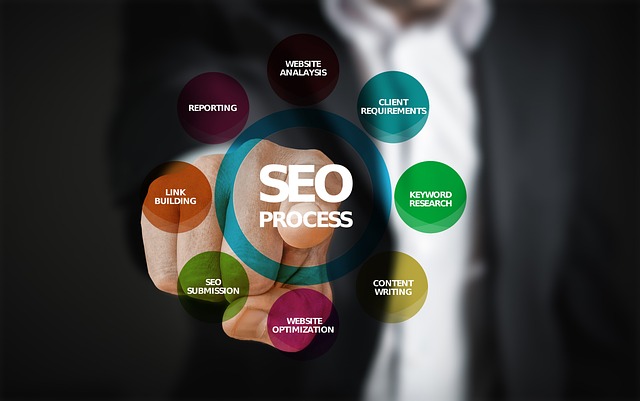So, you’re trying to figure out how AI fits into SEO, right? It’s a big topic these days. Everyone’s talking about artificial intelligence and how it’s changing everything. But when it comes to getting your website seen online, what actually matters? We’re going to talk about the basic stuff that still works, even with all the new AI tools out there. It’s about finding that sweet spot where old-school SEO meets new-school tech. Let’s get into it and see what elements are foundational for SEO with AI.
Key Takeaways
- AI helps you figure out what people are really looking for when they search, not just the words they type.
- AI tools make keyword research much better, finding hidden connections between words.
- Making good, useful content is still super important; AI just helps you make it even better.
- AI can help improve your website’s technical stuff, like how fast it loads.
- Even with AI, you still need human smarts to guide your SEO work and make sure it’s ethical.
Understanding User Intent: The Core of AI-Powered SEO
It’s not just about keywords anymore; it’s about why people are searching. Understanding user intent is now the cornerstone of any successful AI SEO strategy “. AI helps us move beyond simple keyword matching to truly grasp what users are trying to achieve. This shift allows for a more targeted and effective approach to content creation and optimization.
Decoding Searcher Needs with AI
AI tools are now capable of analyzing vast amounts of data to understand the nuances of search queries. They can identify patterns, understand context, and even predict future search behavior. This means we can create content that not only answers questions but also anticipates the next steps in the user journey. It’s about understanding the ‘why’ behind the search, not just the ‘what’.
Anticipating User Queries
AI allows us to move from reactive to proactive SEO. Instead of just responding to existing search trends, we can use AI to predict what users will be searching for in the future. This predictive capability gives us a significant advantage, allowing us to create content that is ahead of the curve and meets user needs before they even arise. For example, AI can analyze seasonal trends, social media conversations, and industry news to identify emerging topics and keywords. This proactive approach ensures that your content remains relevant and visible.
Aligning Content with Intent
It’s not enough to just create content; it needs to align perfectly with user intent. AI helps us ensure this alignment by analyzing the top-ranking content for a given keyword and identifying the key elements that resonate with users. This includes factors like content format, tone, and depth of information. By understanding what works, we can create content that is more likely to satisfy user needs and rank highly in search results. For example, if users searching for “best coffee makers” are primarily interested in comparison tables and product reviews, your content should prioritize these elements. This alignment is essential for SEO success in the age of AI.
By focusing on user intent, we can create content that is not only more relevant but also more engaging and valuable. This leads to higher rankings, increased traffic, and ultimately, better business outcomes.
Here are some ways to align content with intent:
- Analyze top-ranking content for target keywords.
- Identify the key elements that resonate with users.
- Optimize content format, tone, and depth of information.
- Use AI to identify related topics and questions.
- Continuously monitor and refine content based on performance data.
Effective link building is also important.
AI-Powered Keyword Research and Optimization

Beyond Traditional Keyword Matching
Keyword research isn’t just about finding the most popular words anymore. It’s about understanding the intent behind those words. AI helps us see the connections between different search terms and how people actually look for information. Instead of treating keywords as separate entities, AI shows us the bigger picture.
Identifying Semantic Relationships
AI is great at finding connections between words and phrases. It can understand synonyms, related topics, and the context in which people use certain words. This is important because search engines are getting smarter. They don’t just look for exact matches; they try to understand what the user really wants. AI plays a pivotal role in understanding these relationships, ensuring your content aligns with user intent.
Optimizing for Conversational Search
People are using voice search more and more, and they’re talking to their devices in a natural, conversational way. This means we need to optimize for longer, more natural-sounding queries. AI keyword analysis can help us identify these conversational keywords and phrases. It can also help us understand the questions people are asking, so we can create content that answers those questions directly. Think about how you can use YouTube Keyword Research to find conversational keywords.
AI-powered tools can analyze search volume, competition, and user intent, ensuring your content precisely caters to your audience’s requirements. This helps you identify high-performing keywords and reveal new keyword opportunities that might not be immediately apparent through manual research.
Content Relevance and Quality in the Age of AI
It’s not enough to just have content; it needs to be relevant and high-quality, especially now that AI is so involved in SEO. Search engines want to give users the best stuff, and AI helps them figure out what that is. If you want to rank well, you need to make content that people actually find useful and engaging. AI can help you do that by analyzing tons of data to see what people are searching for and what kind of content they like.
Crafting High-Value Content
Creating content that people find valuable is key. Think about what your audience wants to know and then give them the best possible answer. Don’t just rehash what everyone else is saying; try to add something new or offer a different perspective. AI Overviews are changing the game, so make sure your content is ready.
Here’s a simple checklist for creating high-value content:
- Understand your audience’s needs.
- Provide clear and concise information.
- Offer actionable advice or insights.
AI-Driven Content Audits
AI can also help you figure out what’s working and what’s not with your existing content. It can analyze your website and tell you which pages are performing well and which ones need improvement. This can save you a lot of time and effort compared to manually reviewing each page. Content optimization AI can really streamline this process.
AI can act like a research assistant that never sleeps, analyzing top-ranking articles to pinpoint gaps in your content. It helps you identify missed topics or areas where you lack detail, ensuring your content is comprehensive and competitive.
Ensuring Factual Accuracy
With AI helping to create content, it’s more important than ever to make sure everything is factually correct. AI can sometimes make mistakes, so you need to double-check everything before you publish it. This is especially important if you’re writing about sensitive topics. Remember that E-E-A-T (Experience, Expertise, Authoritativeness, and Trustworthiness) is still important. While AI can help you sound smart, it can’t replace actual expertise. AI-generated content needs a human touch to ensure authenticity.
Enhancing User Experience Through AI Insights
User experience is super important for SEO, and AI can really help make websites better for visitors. It’s not just about keywords anymore; it’s about making sure people enjoy using your site. Let’s look at how AI can make a difference.
Personalizing User Journeys
AI can analyze user data to create personalized experiences. Think about it: showing different content to different users based on their past behavior. This could mean recommending products they’re likely to buy, or showing them articles related to their interests. Personalization keeps users engaged and coming back for more. A UTM Link Builder can help track the effectiveness of these personalized campaigns.
Optimizing Site Navigation
Ever get lost on a website? AI can help prevent that. By analyzing how users move around your site, AI can identify confusing navigation paths. It can then suggest changes to make it easier for people to find what they’re looking for. This might involve restructuring menus, adding internal links, or improving the search function. A well-organized site keeps people happy, and happy people stay longer. An SEO company can provide insights into optimizing site navigation for better user experience.
Improving Page Load Speed
Slow websites are a major turnoff. AI can help speed things up. It can identify elements that are slowing down your pages, like large images or inefficient code. By optimizing these elements, AI can significantly improve page load speed. Faster loading times mean happier users and better search engine rankings.
AI can really change how we think about user experience. It’s not just about guessing what users want; it’s about using data to understand their needs and then making changes to meet those needs. This leads to better engagement, higher conversion rates, and ultimately, better SEO performance.
Technical SEO Foundations with AI Assistance
Technical SEO can feel like the ideal place for AI SEO tools, and in many ways, it is. It’s about making sure search engines can easily crawl and understand your site. Let’s look at how AI can help.
Automated Site Audits
AI can crawl your site faster than any human, pinpointing critical issues. It prioritizes them based on actual impact, not just theoretical importance. Think of it as a super-efficient QA team that never sleeps.
- Broken links
- Missing meta descriptions
- Slow-loading pages
Identifying Indexing Issues
AI can quickly identify pages that aren’t being indexed properly. This is super important because if Google can’t index a page, it won’t show up in search results.
AI helps you find and fix these problems fast, making sure all your content has a chance to rank. It’s like having a detective that finds the hidden pages on your site.
Optimizing Core Web Vitals
Page speed optimization has moved beyond just compressing images. Today’s AI-driven SEO considers user experience metrics like First Input Delay and Cumulative Layout Shift. AI tools can predict how changes will affect your scores before you even implement them. This is a game-changer for improving user experience and rankings. You can use UTM Link Builder to track the effectiveness of your changes.
| Metric | Target Value | Current Value | Potential Improvement |
| Largest Contentful Paint | <2.5 seconds | 3.2 seconds | 0.7 seconds |
| First Input Delay | <100 ms | 120 ms | 20 ms |
| Cumulative Layout Shift | <0.1 | 0.15 | 0.05 |
With the help of SEO automation, you can also analyze competitor backlinks to identify opportunities for improvement.
Leveraging AI for Advanced Content Creation
AI is changing how we make content. It’s not just about writing articles anymore; it’s about making content smarter and more effective. Let’s look at how AI content creation can help.
Generating Content Outlines
AI can help you plan your content. Instead of staring at a blank page, you can use AI to create outlines. These outlines can suggest topics, subheadings, and even keywords to include. This makes the writing process faster and more focused. For example, you can use SEO keyword analysis to find the best keywords for your outline.
Assisting with Draft Generation
AI can help write drafts. It can take your outline and turn it into a first draft. This doesn’t mean AI will write the whole thing for you, but it can give you a starting point. It can also help with research, finding information and data to support your points. This can save a lot of time and effort. You can then use the draft as a base and add your own ideas and style. For example, you can use a seo writing ai tool to help you generate content.
Refining Content for Readability
AI can help make your content easier to read. It can check for grammar errors, suggest better word choices, and improve the overall flow of your writing. This is important because readable content keeps people engaged. AI can also help you tailor your content to your audience, making sure it’s appropriate for their level of understanding.
AI tools can analyze your writing and give you feedback on how to improve it. This can help you become a better writer and create content that resonates with your audience.
Here are some ways AI can refine content:
- Checking grammar and spelling
- Suggesting better word choices
- Improving sentence structure
- Ensuring consistency in tone and style
Data Analysis and Performance Monitoring with AI

AI is changing how we look at SEO data. It’s not just about collecting numbers anymore; it’s about understanding what those numbers mean and using that understanding to make better decisions. I remember when I had to manually pull reports and try to find trends – it took forever! Now, AI tools can do that in minutes, freeing up time to actually work on improving things.
Predictive Analytics for SEO
AI can look at past data and predict future trends. This is huge for SEO. Imagine knowing what keywords will be popular next month or what content will resonate with your audience before you even create it. AI can analyze search patterns, user behavior, and even social media trends to give you a sneak peek into the future. This lets you proactively adjust your SEO strategy and stay ahead of the competition. For example, if you see a spike in searches for “best anchor”, you can create content around that topic to capture that traffic.
Automated Performance Reporting
Gone are the days of manually compiling reports. AI can automate the entire reporting process, giving you real-time insights into your SEO performance. These reports can be customized to track the metrics that matter most to you, such as rankings, traffic, conversions, and engagement. Plus, AI can identify areas where you’re doing well and areas where you need to improve. It’s like having a personal SEO analyst who works 24/7. I used to spend hours creating reports, but now I can get them with a click of a button. It’s a game-changer.
Identifying Ranking Fluctuations
Search engine rankings are constantly changing. One day you’re on top, the next you’re buried on page two. AI can help you track these fluctuations and understand why they’re happening. It can analyze changes in the search engine algorithm, competitor activity, and even user behavior to pinpoint the cause of ranking drops. This allows you to quickly address any issues and get your site back on top. I remember one time my site suddenly dropped in rankings, and I had no idea why. With AI, I could have quickly identified the problem and fixed it before it caused too much damage. It’s like having a Los Angeles SEO agency watching your back.
AI-powered data analysis isn’t just about looking at numbers; it’s about understanding the story those numbers tell. It’s about using data to make smarter decisions and improve your SEO performance. It’s about staying ahead of the curve and adapting to the ever-changing world of search.
Ethical Considerations and Human Oversight in AI SEO
AI is changing SEO, but it’s not a free pass to abandon ethics or human input. We need to think about how we’re using these tools and make sure we’re not just chasing rankings at the expense of everything else. It’s about finding a balance.
Maintaining Human Creativity
AI can help with brainstorming and generating ideas, but it shouldn’t replace human creativity. The best content comes from unique perspectives and original thought. Don’t let AI homogenize your content. Use it as a tool to augment your ideas, not replace them. It’s easy to fall into the trap of letting the AI do all the work, but that’s when your content starts to sound like everyone else’s. Think of AI as a research assistant that doesn’t need coffee breaks.
Ensuring Content Authenticity
Authenticity is key to building trust with your audience. AI-generated content can sometimes sound generic or lack a personal touch. Make sure your content reflects your brand’s voice and values. Don’t just blindly publish what the AI spits out. Review it, edit it, and add your own flavor. It’s about sounding like a more organized version of yourself, not like everyone else using the same AI tools. Consider how PPC Marketing can help drive authentic engagement.
Avoiding Algorithmic Bias
AI algorithms are trained on data, and that data can contain biases. This can lead to skewed or unfair results. Be aware of this potential bias and take steps to mitigate it. Regularly audit your AI-powered SEO strategies to ensure they’re not perpetuating harmful stereotypes or excluding certain groups. It’s important to remember that AI is a tool, and like any tool, it can be used for good or bad. We have a responsibility to use it ethically. Think about how ethical considerations play a role in your SEO strategy.
It’s easy to get caught up in the excitement of AI and forget about the human element. But at the end of the day, SEO is about connecting with people. We need to make sure we’re using AI in a way that enhances that connection, not detracts from it.
Building Authoritative Backlinks with AI Support
Link building is still a big deal in SEO, and while AI can’t magically create high-quality backlinks, it can seriously improve how you find and target potential link sources. It’s about working smarter, not harder.
Identifying Link Opportunities
AI can be a game-changer when it comes to finding link opportunities. Instead of manually searching, AI tools can analyze websites and content to find relevant sites in your niche. This saves a ton of time and helps you focus on building relationships with the right people. Think of it as having a virtual assistant that’s always on the lookout for potential partners. For example, you can use a free online Meta Tag Generator to quickly create meta tags for your website.
Analyzing Competitor Backlinks
Keeping an eye on what your competitors are doing is always a good idea. AI tools can analyze their backlink profiles to see where they’re getting their links from. This can give you ideas for potential link sources that you might not have considered. Plus, you can see what kind of content is attracting links in your industry. It’s like having a secret window into their SEO strategy. Here’s a simple breakdown:
- Identify top-performing competitor content.
- Analyze their backlink sources.
- Find gaps in their strategy you can exploit.
Streamlining Outreach Efforts
Outreach can be a time-consuming process, but AI can help automate some of the tasks involved. For example, AI can help you find contact information for potential link partners and even personalize your outreach emails. This can save you a lot of time and effort, allowing you to focus on building relationships and creating great content. AI can assist in efficient discovery of high-quality opportunities.
AI isn’t going to replace human interaction entirely, but it can definitely make the process more efficient. It’s about using AI to augment your efforts, not replace them. You still need to build relationships and create content that people want to link to.
Adapting to Evolving Search Algorithms with AI
Search engine algorithms are always changing. It can feel like you finally figure things out, and then boom, everything shifts. That’s where AI comes in. It’s not just about keeping up; it’s about getting ahead. Let’s look at how AI can help you stay on top of these changes.
Real-Time Algorithm Change Detection
AI can monitor search engine results pages (SERPs) and identify changes in ranking factors almost instantly. This allows for quick adjustments to your SEO strategy. Instead of waiting weeks to see if an update affects your site, you can know within hours and take action. It’s like having a constant alert system for your SEO.
Proactive Strategy Adjustments
With AI, you can move from reactive to proactive. AI tools can analyze data and predict how algorithm updates will affect your site. This means you can make changes before the update even rolls out, minimizing any negative impact. Think of it as future-proofing your SEO.
Staying Ahead of Search Trends
AI helps you spot emerging trends and adapt your content strategy accordingly. It can analyze search queries, social media conversations, and other data sources to identify what people are interested in. This allows you to create content that is relevant and timely, helping you attract more traffic and improve your rankings. It’s about being where your audience is, before they even know they’re going there. Understanding >SEO and machine learning is key to staying ahead.
AI isn’t a magic bullet, but it’s a powerful tool for adapting to the ever-changing world of search. By using AI to monitor algorithm changes, predict their impact, and identify emerging trends, you can stay ahead of the curve and maintain a strong online presence. It’s about using data to make smarter decisions and ensuring your SEO strategy is always optimized for the latest search landscape. Don’t worry about Is SEO Dead in 2025? – it’s just evolving.
Strategic Takeaway: Merging AI Power with SEO Principles
So, we’ve talked a lot about how AI fits into SEO. It’s pretty clear that AI changes how we do things like keyword research and making content. But here’s the thing: even with all this cool AI stuff, the basic ideas of good SEO are still super important. You still need to make good content that people actually want to read, and your website still needs to work well. AI just helps you do those things better and faster. It’s like having a really smart assistant. The real trick is to use AI to make your human efforts even stronger, not to just let AI do everything. If you keep that in mind, you’ll be in a good spot for SEO, now and in the future.
Frequently Asked Questions
1. How does AI help with SEO?
AI helps SEO by making things faster and smarter. It can look at tons of data to figure out what people are searching for, find good keywords, and even help write content. It also helps make sure your website works well and loads fast, which search engines like.
2. Are traditional SEO methods still important with AI around?
Yes, they are! AI doesn’t replace old SEO tricks; it makes them better. Things like making great content, using the right keywords, and making your website easy to use are still super important. AI just gives you better tools to do these things.
3. What does ‘understanding user intent’ mean in AI SEO?
AI helps you understand what people really mean when they type something into a search engine. It looks beyond just the words to figure out what information they’re actually trying to find, so you can make content that truly helps them.
4. How does AI make keyword research better?
AI helps with keyword research by finding not just single words, but whole phrases and ideas that people use. It can even help you find out what questions people are asking, so you can make content that answers them directly.
5. Can AI help with the technical parts of my website’s SEO?
AI can help you check your website for technical problems, like slow loading times or broken links. It can also help make sure your site is set up correctly so search engines can easily find and understand your content.
6. How does AI assist in creating content?
AI can help you write outlines for your content, suggest ideas, and even help you write first drafts. It can also check your writing to make sure it’s easy to read and understand.
7. How often should I check my SEO performance using AI tools?
AI tools can watch how your website is doing all the time. They can tell you if your rankings change, show you what people are doing on your site, and even guess what might happen next, so you can make smart choices.
8. Is it important to have human oversight when using AI for SEO?
While AI is powerful, it’s still important for people to be in charge. Humans need to make sure the content is real, fair, and creative. AI is a helper, not a replacement for human thought and good judgment.




